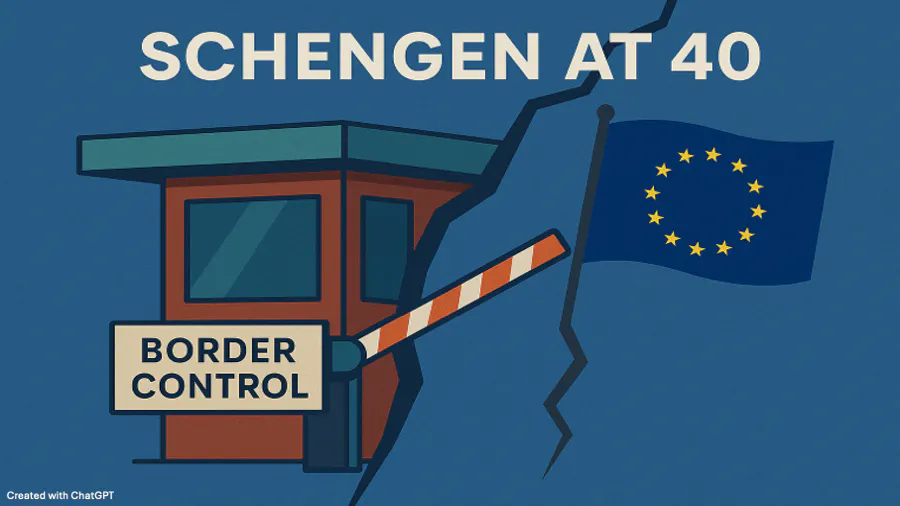Schengen at 40: Celebrating freedoms, confronting fractures
June 2025

In June 2025, the Schengen Agreement marks its 40th anniversary. Signed on 14 June 1985 near the small Luxembourgish town of Schengen, the agreement was a bold political experiment to abolish internal border checks among participating European countries. What began as an initiative among five countries, i.e. Belgium France, Germany, Luxembourg and the Netherlands, has since grown into a cornerstone of European integration, enabling seamless travel, trade, and cooperation across 29 countries. These are all EU member states except Cyprus and Ireland. Cyprus is not yet part of Schengen, and Ireland has an opt-out. In addition four non-EU member states are part of the Schengen Agreement: Iceland, Liechtenstein, Norway, and Switzerland. As Europe celebrates this milestone, it is a time not only to reflect on the Schengen Area's achievements, but also to assess its current setbacks and plan for the future.
Economic and social integration
One of the most transformative impacts of Schengen has been economic. By removing internal borders, the agreement has created a more efficient, interconnected European economy. Goods can now move freely across borders, reducing costs and boosting competitiveness. According to road transport data from 2015, the value of goods crossing Schengen borders was estimated at EUR 2.8 trillion per year, a figure which is expected to have grown since then. For businesses, particularly small and medium-sized enterprises (SMEs), the reduction in time and logistical burdens has been hugely beneficial.
To read this post you'll need to become a member. Members help us fund our work to ensure we can stick around long-term.
See our plans (Abre numa nova janela)
Já é um membro? Iniciar sessão (Abre numa nova janela)